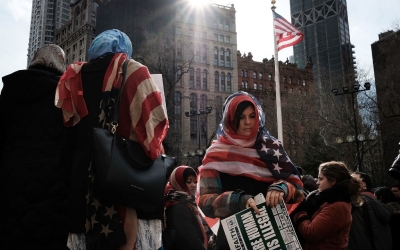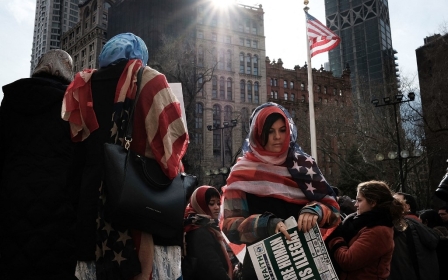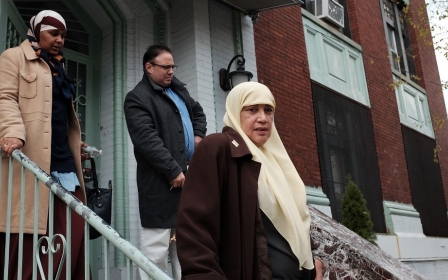US city reaches settlement with Muslim men over police Islamophobia incident

The city of Detroit has reached a settlement with three Muslim men who filed a lawsuit against two police officers, following an incident three years ago where one officer was recorded on body cameras making statements such as: "Muslims lie a lot" and "Muslim men are paedophiles."
"We hope through this settlement, that the Detroit Police Department would be more willing to not only go through (anti-bias) training but that their officers will internalize that training in dealing with the large Muslim population of Detroit," Dawud Walid, the Council on American–Islamic Relations (Cair) Michigan director, told The Detroit News on Tuesday.
The incident took place on 26 September 2020, following a 911 assault report in which Khalil Muhammad called 911 to report that a woman who lived in his house had attacked him and his two friends with a hammer and destroyed his property. According to the lawsuit, Muhammad told police the woman had needed a place to stay after being released from a mental health facility.
When Detroit Police Department (DPD) officers Donald Owens and Nathaniel Mullen arrived, they first spoke with the woman outside the house and she told the officers at a certain point that the men she was staying with were Muslims. Owens made the Islamophobic comments after hearing this, the lawsuit says.
According to body-worn camera footage reviewed by The Detroit News after the lawsuit was filed, Owens told another officer after speaking to the woman: "Muslim men are paedophiles," "Muslims lie a lot ... they control them ... like, they feel like ... you don't have a say if you're a woman."
New MEE newsletter: Jerusalem Dispatch
Sign up to get the latest insights and analysis on Israel-Palestine, alongside Turkey Unpacked and other MEE newsletters
An unidentified female officer replied, "Especially woman."
Owens responded: "You don't have the say-so- like, 'you do what we tell you to do'."
The officers arrested Muhammad, Clifford Williams, and Roberto Guzman “and handcuffed [them] in front of the Greenlawn residence in broad daylight in front of their neighbours in a manner that was intended to humiliate and embarrass them due to their Muslim faith," the lawsuit says.
"(The) arrest was based solely on Defendants' animus and bigotry towards Muslims, especially Muslim men, and was without probable cause."
The individuals were subsequently released without any charges being filed.

In September 2021, when the lawsuit, which sought a minimum of $75,000, was announced, Detroit Police confirmed that an internal investigation into the allegations against Owens and Mullen was underway.
As a result of the investigation, Owens faced a five-day suspension without pay after being convicted of two departmental violations, which included neglect of duty and "disparaging or demeaning the race, nationality or personal characteristics of any person," DPD officials said on Tuesday.
"The statements made by the involved officer in 2020 were inexcusable and unbecoming of an officer of this Department," the DPD said in a statement.
"The allegations led to a formal investigation that ultimately resulted in the officer being suspended from duty. Under no circumstances will this Department condone the disparagement of any individual, particularly on the basis of their race or ethnicity.”
Last year, a study by Rice University showed that Muslims are five times more likely to experience police harassment because of their religion compared to those of other faiths.
More specifically, Muslim adults who identify as Black, Middle Eastern, Arab, or North African are more likely than Muslims who identify as white to report that they have been harassed by the police because of their religion, according to the study published in the Society for the Study of Social Problems.
Middle East Eye delivers independent and unrivalled coverage and analysis of the Middle East, North Africa and beyond. To learn more about republishing this content and the associated fees, please fill out this form. More about MEE can be found here.




